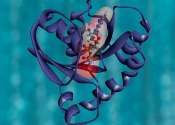DNA microcapsules: Scaling up the future of data storage
Storing data in DNA sounds like science fiction, yet it lies in the near future. Professor Tom de Greef expects the first DNA data center to be up and running within five to ten years. Data won't be stored as zeros and ones ...









